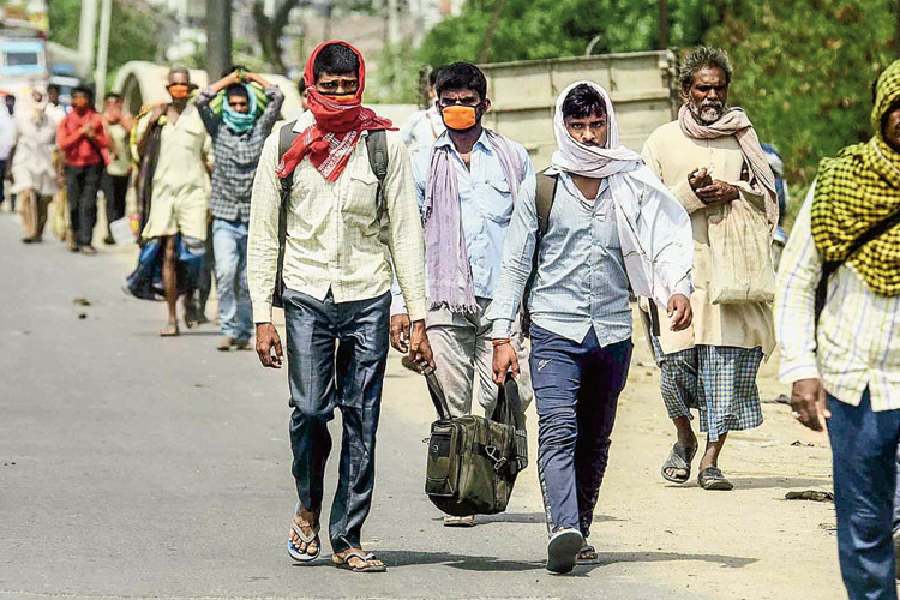Many Bengal migrant workers, including Muslims, appear to have chosen livelihood over life and stay back in violence-hit Gurgaon, as most of them think that their home state does not have enough job opportunities for them.
“Some people have left for villages back home, but I could not muster up the courage to go home...,” Nur Jamal, 25, who works in a pantry of an IT company in Gurgaon, and hails from a village in South Dinajpur district.
“Returning home means the prospect of joblessness or very limited income. I came to Gurgaon, thousands of kilometers away from my village, in search of a better life for myself and my old parents,” said the son of a marginal farmer.
Nur has studied up to class X in a school in Bangsihari in South Dinajpur. He said he neither wanted to till the family’s farmland nor was he interested in working as a daily labourer in the rural job scheme that ensures an annual wage of around Rs 29,000 if someone gets employment on all the 100 days.
“The only option for me was to migrate out of Bengal and I did that four years ago... Now, I earn around Rs 18,000 a month. I won’t be able to earn even one-third of it in my village and so I am not going back,” said Nur from his one-room shanty in a slum in Sector 70A in Gurgaon.
The young migrant worker from Bengal, like most Muslim workers engaged in various companies or their outsourced agencies in Gurgaon, has not reported for work for the last five days as Gurgaon has been on the boil because of communal strife. He is also not sure when his prayers for peace in Gurgaon will come true, but still is not contemplating packing his bags.
In Saturday’s edition, The Telegraph reported how 50-odd migrant workers and their families, totalling around 200 people, took a train back to Bengal fearing for their lives in Gurgaon where outfits like Vishwa Hindu Parishad and Bajrang Dal have ordered landlords to give marching orders to their Muslim tenants.
“I am lucky that my landlord didn’t ask me to leave... He only told me not to step out. I am following his advice and praying for the return of peace,” said Nur.
Nur apart, this correspondent spoke to three other migrant workers over the phone, who said they were in no mood to return to Bengal in a hurry. They wanted to take the risk of staying in strife-torn Gurgaon as going back to their villages would have “serious economic repercussions”.
Raj Sarkar, 26, said in Gurgaon he earns around Rs 20,000 a month as a security guard in a housing complex, and some more money as tips. Raj is sure he can’t get a job in his village in South Dinajpur. “If I go to Calcutta, I won’t get more than Rs 8,000 a month as a security guard. I don’t see the point in going back to Bengal,” he said.
The issues raised by Nur and Raj assume significance in the backdrop of an effort by the Bengal government on Saturday to reach out to 50-odd migrant workers who returned from Gurgaon fearing attacks in the wake of communal tension. The West Bengal Migrant Welfare Board has assured them of job opportunities in the state.
“We collected details of those migrant workers who returned home. We will offer them jobs in the construction or hospitality sectors by next week.... If they are interested we will try to deploy them in those vacancies” said Samirul Islam, the board chairman.
The migrant workers who boarded a train on Thursday night with their families reached their respective homes in Bengal on Saturday morning.
Samim Hossain, one of them, said he received a phone from a state official who assured him of a job. “I am really happy to get the call but am not sure what kind of money I will get,” said Samim. “We are poor people.... That’s why I went to Gurgaon in the first place.”











